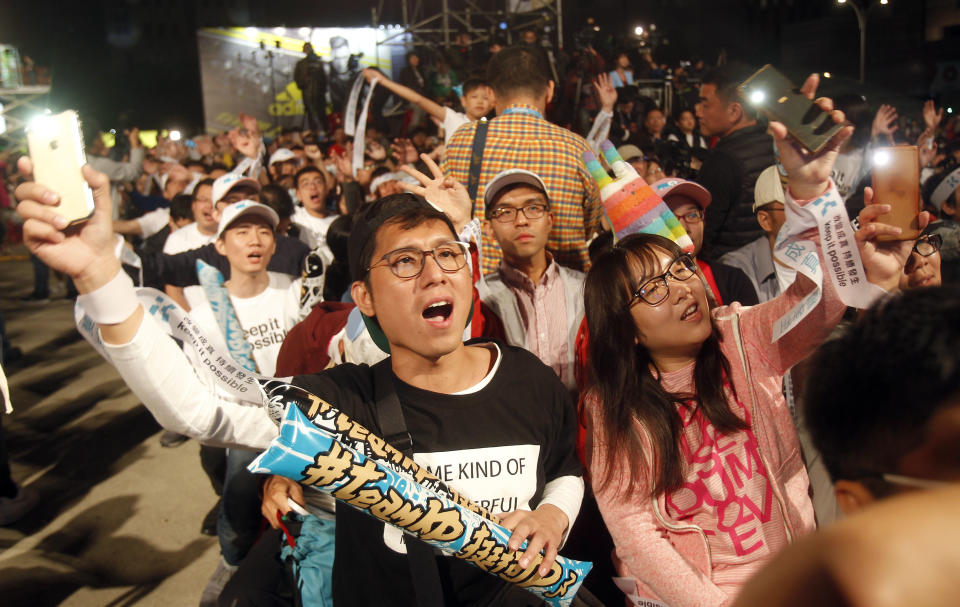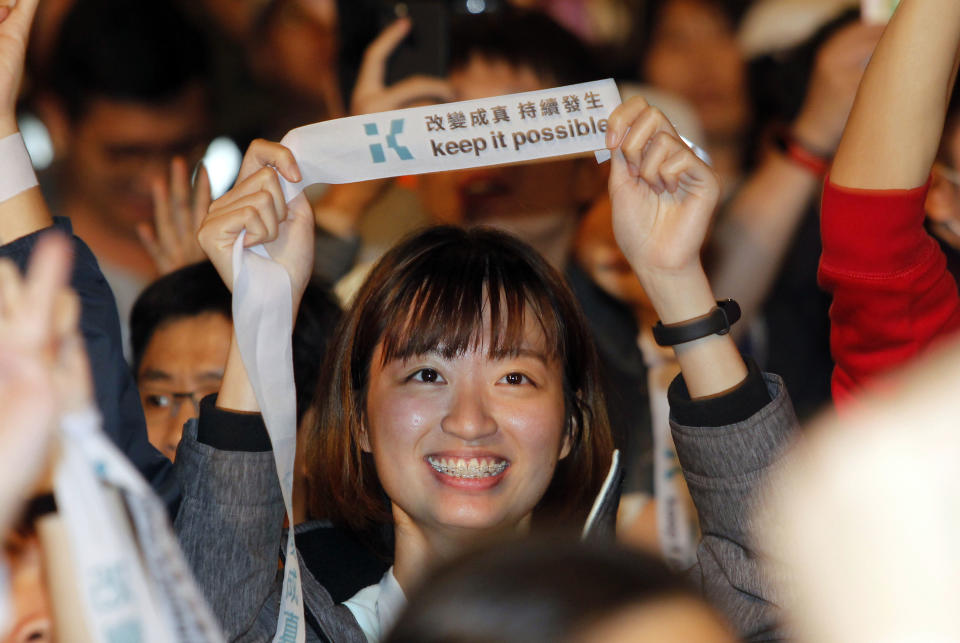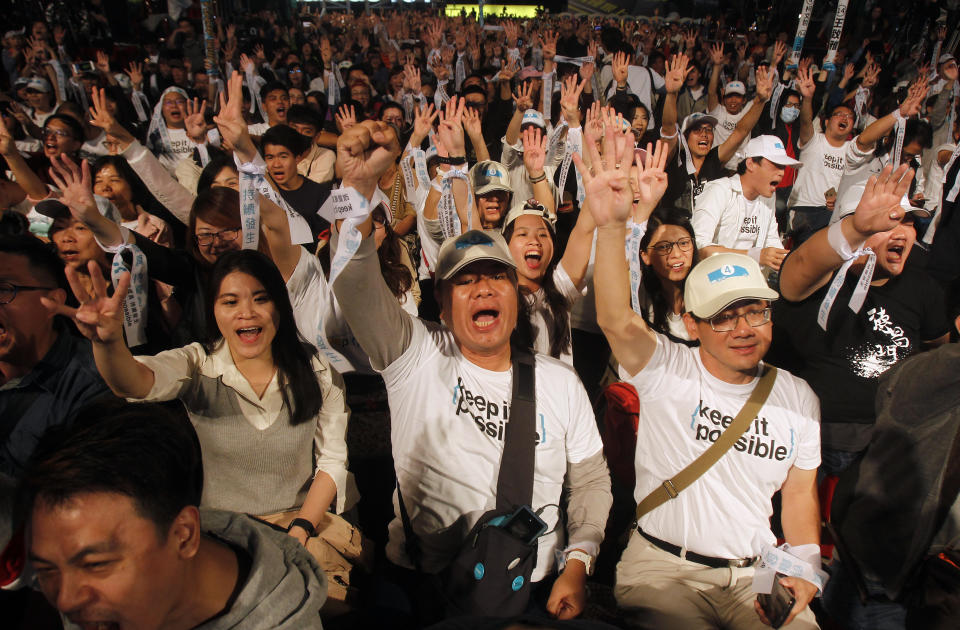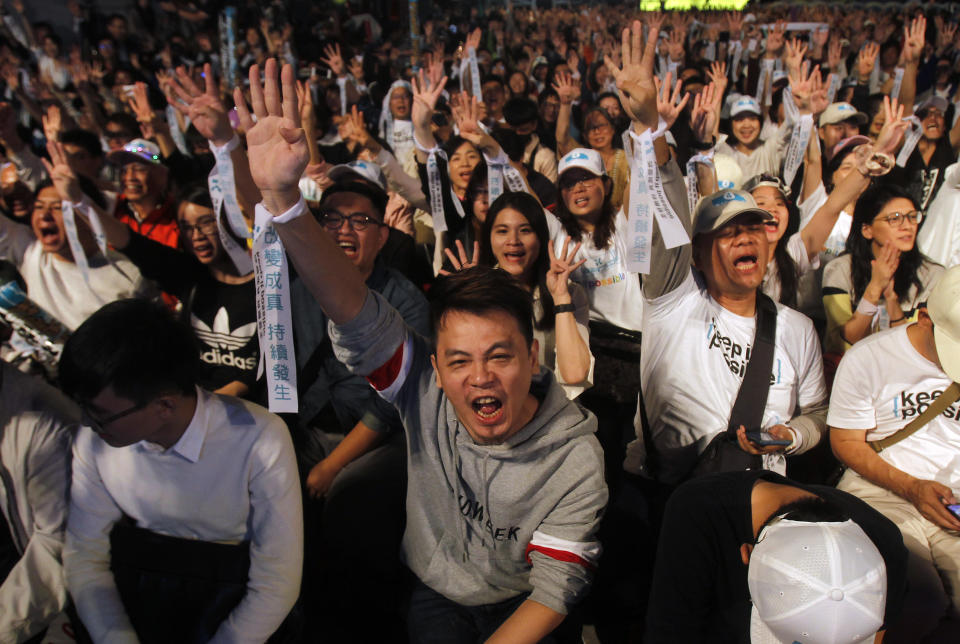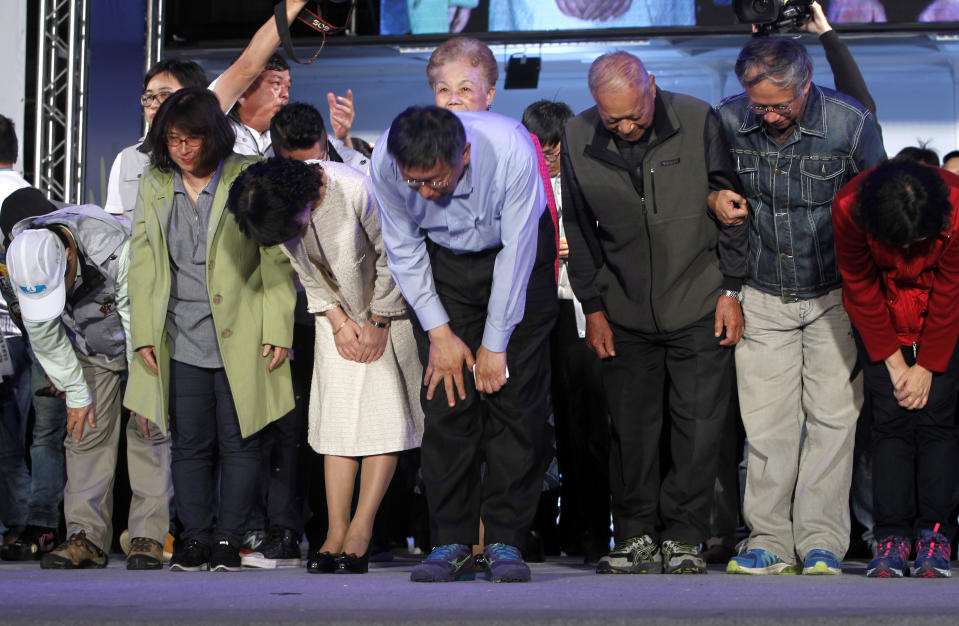The Latest: Taiwanese reject gay marriage, new Olympic name
TAIPEI, Taiwan (AP) — The Latest on local elections in Taiwan (all times local):
10 a.m.
Voters in Taiwan have approved a referendum opposing same-sex marriage while rejecting a proposal to change the name of its Olympic team to Taiwan from the current Chinese Taipei.
The referendums were among 10 on the ballot during island-wide city mayoral elections Saturday that dealt a major setback to President Tsai Ing-wen's independence-leaning party.
Ballot initiatives are advisory only in Taiwan, but the vote in favor of restricting marriage to male-female couples will put lawmakers in a difficult position. They face both a court order to make same-sex marriage legal by 2019 and elections in 2020.
The proposal to use the name Taiwan at future international sports events was opposed by China, which considers Taiwan a part of its territory. It was seen as a test of support for independence.
___
8:45 a.m.
China says the results of local elections in Taiwan, where President Tsai Ing-wen's independence-leaning party suffered a major defeat, reflect a desire for better relations between the mainland and the self-ruled island.
Ma Xiaoguang, the spokesman for Beijing's Taiwan Affairs Office, says "we have noticed the results of the elections." He says they reflected "the strong will of the public in Taiwan in sharing the benefits of the peaceful development across the Taiwan Strait, and desires to improve the island's economy and people's well-being."
He says his government will continue to treat Taiwan as part of China and "resolutely oppose separatist elements advocating 'Taiwan independence' and their activities."
The elections for mayors and thousands of local posts were seen as a key test for the 2-year-old administration of Tsai, whom Beijing has relentlessly attacked over her refusal to endorse its claim that Taiwan is a part of China.
___
9:55 p.m.
Taiwanese President Tsai Ing-wen has resigned as head of the ruling Democratic Progressive Party to take responsibility for a major defeat suffered by her party in local elections.
Tsai will remain as president and her resignation will have no direct effect on the business of government. At a brief news conference at DPP headquarters late Saturday following the elections, Tsai also said she had refused Premier William Lai's resignation, saying she wanted him to continue her reform agenda.
Tsai said: "Today, democracy taught us a lesson. We must study and accept the higher expectations of the people."
The elections for mayors and thousands of local posts are seen as a key test for the 2-year-old administration of Tsai, whom Beijing has relentlessly attacked over her refusal to endorse its claim that Taiwan is a part of China.
___
8:10 p.m.
Taiwan's ruling Democratic Progressive Party has suffered a major defeat in local elections seen as a referendum on the island's president amid growing pressure from China.
Saturday's elections for mayors and thousands of local posts are a key test for the 2-year-old administration of President Tsai Ing-wen, whom Beijing has relentlessly attacked over her refusal to endorse its claim that Taiwan is a part of China.
Tsai's DPP lost the mayorship to the Nationalist party in the southern port city of Kaohsiung, where it had held power for 20 years. The Nationalists ruled Taiwan for decades after it split from mainland China in 1949 amid civil war.
The Nationalists also defeated the DPP in the central city of Taichung, while Ko Wen-je, the independent mayor of Taipei, the capital, appeared on track for a second term.
___
10:35 a.m.
Taiwanese have begun voting in midterm local elections seen as a referendum on the administration of President Tsai Ing-wen, amid growing pressure from the island's powerful rival China.
The elections that follow Tsai's landslide victory in 2016 will decide the races for 22 mayors and county magistrates along with thousands of local officials.
Driven from power two years ago, the opposition Nationalists hope to regain territory by counting on their pro-business image and a more accommodating line toward Beijing.
Since her election in 2016, Tsai has maintained Taiwan's de facto independent status while avoiding calls to declare formal separation from the mainland.
China has been ratcheting up pressure on the island it claims as its own territory by poaching away its diplomatic partners, cutting official contacts and staging threatening military exercises.

